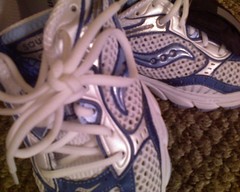Monday, September 26, 2011
Putting the you in unique
This video of olympic beard wearer Robert Sapolsky talking about what makes humans unique plays to a lot of topics I've been thinking about recently.
Bert's top 10
As a follow up to an earlier post, here are Bertrand Russell's 10 commandments for liberals - in the old-fashioned sense of the word.
Tuesday, September 20, 2011
You, you, you
I found this characterisation of the future deeply scary, if great fodder for a story. I can see a day when we all map our moods, or they are mapped for us, and we are prone to being sold stuff our bodies think we need.
Thursday, September 15, 2011
Drive, he said
I'm noting this about traffic flows and how to improve them for a future, but brewing, story about cars, hobos and travelling.
Action stations
All I will ever need to know about the active and passive voice from the always wonderful Language Log. I just wish I could understand it.
Thursday, September 08, 2011
Tuesday, September 06, 2011
My three Rs...
 Image by Kim.Wood via Flickr...are reading, writing and running. I am a fool for books and cannot remember a time when I could not read. But it has taken having kids to really bring it home to me how much of a bibliophile I am. It frustrates me a little that my kids are not so gung ho on books as I was when I was their age. For a long time I did not understand why books did not have the same allure for them that they did for me. At the same time I'm jealous of all the discoveries they have yet to make and all the fabulous reading that is to come if they do turn out to be book worms.
Image by Kim.Wood via Flickr...are reading, writing and running. I am a fool for books and cannot remember a time when I could not read. But it has taken having kids to really bring it home to me how much of a bibliophile I am. It frustrates me a little that my kids are not so gung ho on books as I was when I was their age. For a long time I did not understand why books did not have the same allure for them that they did for me. At the same time I'm jealous of all the discoveries they have yet to make and all the fabulous reading that is to come if they do turn out to be book worms.The second is writing and I have done that throughout my life too. For a long time I've dabbled, written the odd story here and there and never done anything with them, occasionally got it together enough to send out the odd manuscript and novel proposal and then given up when the rejections came back.
For the past five years or so I have been trying to get more serious about it with a small amount of success. I think I've stuck with it so long this time because it is a lot easier to do. Sending a story out by e-mail or uploading it via a submission system is so much easier than printing out the manuscript, adding a cover letter, adding an SAE (and perhaps an IRC) putting it in an envelope, schlepping down to the post office, queuing , paying and waiting and waiting. Success, and rejection, come so much quicker in the internet age.
And now running has come back into my life. Again it has been something I have done on and off all my life. I even ran a half marathon a decade or so ago in a time that bestows no credit on me whatsoever. And I've taken it up again now. I'm glad that I have. Part of the reason I wanted to do it is because it seems to be the easiest form of exercise - I have feet and there are roads to run on everywhere. And I want to do it because I do not want to suddenly catch sight of myself and realise I am fat and 40+.
It turns out that there is an unforeseen and unremembered benefit of pounding the roads and it has a lot of parallels with writing. Both are (largely) solitary pursuits. But both benefit from the input of others. Both require commitment to get the most out of them and the benefits they bestow are measurable.
But perhaps the greatest parallel is found in the middle of a run. In the moments when it is easy and, more often, in the moments when your body begrudges each breath, when ankles creak and it is easier to quit and collapse than it is to keep going. That's when you earn your spurs as a runner, when you look for and find the courage to go on, when something shifts deep in the silt of your soul, you grit your teeth and get it done. When the time you clock would disgrace a tortoise but you count it as a victory because you took yourself on and won.
And then the rationalisations start. That you can't call it a victory because you could have gone faster in the first mile, and there was that section where you felt fine so you were really holding back, and you weren't breathing that hard when you stopped so you could have got more out of yourself.
I have similar thoughts about writing. Sometimes it is easy and the pages fly past like a picket fence, and sometimes it is just about getting your head down and getting it done. It is about finding the courage to go on even if afterwards no-one knows what it took, what it took out of you and what it gave back.
Story writing has its post-race rationalisation too. That it's not as good as it could be because you liked that passage and you've left it in when you should take it out. And the similes are weak because you didn't have the guts to let them flow and it didn't take your breath away so it doesn't really count and next time, next time, the crowd will get to their feet when you turn in the manuscript because you didn't put a foot wrong. I don't think that's a real possibility but I'm taking steps to get there.
Friday, September 02, 2011
A diet of words
 Image via WikipediaI have learned a lot about writing fiction in the last few years. Some of that learning has come about by reading a lot about the craft of writing fiction. Many of those articles, blogs and books trot out rules that beginning writers must follow if they are to tread the well-worn road to success.
Image via WikipediaI have learned a lot about writing fiction in the last few years. Some of that learning has come about by reading a lot about the craft of writing fiction. Many of those articles, blogs and books trot out rules that beginning writers must follow if they are to tread the well-worn road to success.
Alongside "murder your darlings", "do not use adverbs" and "omit unnecessary words" go others such as Elmore Leonard's advice to never open a book with weather. There are a lot of rules and it would be impossible to follow them all as many of them are contradictory.
One rules I have kept most assiduously is to keep the text tight. The copy of Ken Rand's 10% Solution I own is heavily thumbed and I use it with every story to snip out a few hundred words and tighten up the places where the text is flabby. That formula of second draft = first draft - 10% is one that Stephen King follows as do many other writers.
I have also been rigorous in trying to show rather than tell as much as I can. The combination of the two has left my stories tighter and lacking the large hunks of internal dialogue I find in many of the short stories I review and read.
I am starting to wonder if I have gone too far. I suspect my day job does not help because in my professional life I write news stories for a large media organisation. I have been doing this for quite a long time. Most of the news stories I write are quite short. The words are short and so are the sentences. Brevity and news go hand in hand.
But fiction is not news. There are times when sentences in fiction can be short. Need to be short. And there are times when those sentences need to be lush and long, stretching out to evoke a mood or underscore the actions of a character. I have lost sight of that. I have re-read a couple of recent stories and they posses the virtue of brevity but lack emotional engagement and any information about internal states. My preference to show rather than tell (albeit imperfectly) has seen me cut those bits out.
I am going to stop doing that. I am done with strict adherence to those rules. I want to write longer sentences, tell readers what a character is thinking and be happy to have my prose show off and swish around. Many of my favourite writers are unashamedly prolix. They write long sentences that sometimes sag under the weight of the words they hold. They use difficult words (spatulate!) and show their love of language. Those are rules I'm happy to follow.
Subscribe to:
Posts (Atom)


